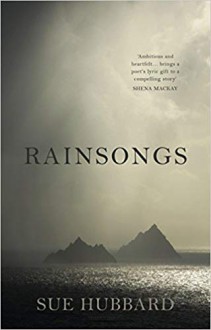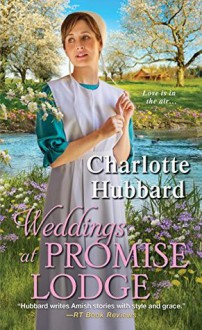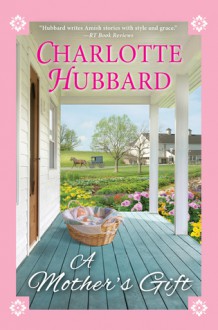One of the joys of reading on a Kindle (or, in my case, a Kindle app) is the ease of bookmarking. As one indication of how important I found Alec Nevala-Lee's Astounding: John W. Campbell, Isaac Asimov, Robert A. Heinlein, L. Ron Hubbard, and the Golden Age of Science Fiction, I bookmarked it ten times more than any other book I've read in the past few years. (The runners-up are The Perversity of Things: Hugo Gernsback on Media, Tinkering, and Scientifiction by Grant Wythoff and Dreaming the Beatles by Rob Sheffield, though I read those two on paper.)
It's no surprise (at least to me) that Astounding had much more of an impact on me - a transformative impact - than The Perversity of Things. I knew neither Gernsback or Campbell in person, or by any means other than their published writing. In contrast, I knew and worked with Isaac Asimov, the high point of which was getting him to write a Preface for my first published book, In Pursuit of Truth: Essays on the Philosophy of Karl Popper in 1982. It was a collection of essays (I contributed one) of which I was the Editor, and I didn't have to work very hard to get Asimov to write the Preface: we already knew each other (I'd sent him my analysis of the Foundation trilogy published a few years earlier in Media and Methods - here's his postcard response - and he quickly accepted Humanity Press's not overly generous offer of $100 to write the Preface for the Popper volume). And, as President of the Science Fiction Writers of America from 1998-2001, and as a science fiction writer myself, I also knew or still know many of the secondary players in Astounding, including Harlan Ellison, Arthur C. Clarke, Hal Clement, Robert Silverberg, Sam Delany (I first heard about him from his mother Ruth, in the mid-1960s, in the George Bruce Branch Library in Harlem where she worked as a librarian and I as a clerk), Ray Bradbury, David Kyle, Barry Malzberg, Greg Benford, Joe Haldeman, Janet (Jeppson) Asimov, and many others. So seeing them in these pages was a tour through many significant conversations and interactions I've had in my own life.
And on being a science fiction writer myself, Nevala-Lee's book also tapped into another profound wellspring of my career: I've been published in Analog 17 times (15 stories and 2 nonfiction articles - one story acquired by Trevor Quachri, all the rest by Stan Schmidt), and am a card-carrying member (well, pin-affixed) of the Analog Mafia. Stan's editing philosophy continued the best of Campbell's. In my case, for example, Stan urged me to not kill off Phil D'Amato (which I had in the first draft of "The Chronology Protection Case"), just as Campbell had urged Frank Herbert not to kill Alia in Dune, one of a plethora of winning details that Nevala-Lee puts in this book. "The Chronology Protection Case" was made into a short movie, now on Amazon Prime, and Phil D'Amato's appearance in my first novel, The Silk Code, won a Locus Award for Best First Novel of 1999.
Ok, so I love Nevala-Lee's book. But what about people without my professional history? I can't say for sure, but I would bet that any science fiction writer, as well as any science fiction fan, would find this book riveting, and a treasure trove of context-setting scenes. What follows, in rough order of their appearance in the book, are some of the highlights for me:
1. I knew that Paul Krugman was influenced by the Foundation stories, but not Elon Musk. Given the latter's age, I wonder if he was reading Analog in the mid-late 1990s, when my stories first started appearing in its pages.
2. Campbell, as a kid, kept a garter snake in his pocket. I wonder if Stan Schmidt, who had pet snakes, knew about this.
3. I was fascinated to learn that Campbell's favorite professor at MIT was Norbert Wiener. I studied Wiener's Cybernetics when earning my PhD in Media Ecology under Neil Postman at NYU in the late 1970s. Cyberneticsalso appears later in the book in its extensive discussion of dianetics - the least favorite part, for me, because I never related to Hubbard, dianetics, or Scientology, but it's an important part of the Campbell story.
4. It turns out that Campbell, like Gernsback, was in effect a media ecologist, presaging the kind of thinking that Marshall McLuhan made famous, by observing that unlike radio, television was very possessive, "you have to look at it," and "Man molded the machine, but the machine is going to mold Man". This difference between radio and television played a crucial role in my doctoral dissertation, Human Replay: A Theory of the Evolution of Media, and I often say that radio amply survived the advent of television if for no other reason than you can listen to radio, but can't (safely) watch television, when driving. I'm grateful to Nevala-Lee for alerting me that Campbell made this point back in the 1930s.
5. One thing I do have in common with L. Ron Hubbard: he was elected President of the NY chapter of the American Fiction Guild in 1935. As I already mentioned, I was President of SFWA at the end of the 20th century. That, and later being Chair of the Department of Communication and Media Studies at Fordham University in NYC, convinced me that elected office was no pleasure, and indeed took too much time away from writing.
6. A lot of the material about Asimov comes from his two-part autobiography, In Memory Yet Green and In Joy Still Felt, which I devoured as soon as they were published (1979, 1980). But it was fun to read it all again - ranging from Asimov getting $64 for his first sale, "Marooned Off Vesta," to Amazing Stories not Astounding (my first sale of a science fiction story to a professional publication was also to Amazing Stories - "Albert's Cradle" in 1993 - and the first payment I ever received for any writing was $65 from The Village Voice for "A Vote for McCartney" in 1971) - to Campbell continually coming up with essential ideas for both the Foundation and the robot stories. (I should also mention that, like Asimov, I have no intention of ever writing under any name other than my own. Except Asimov eventually did, and I won't. I want the girl who didn't laugh at my jokes in 5th grade to see the error of her ways when she walks into a bookstore - or, in today's world, when she's browsing on Amazon.) And it was enlightening to read material about Asimov from other sources that I didn't know.
7. I also studied General Semantics in the NYU Media Ecology PhD program. I still give talks at some of their meetings, and therefore enjoyed Nevala-Lee's recounting of Heinlein's interest in the subject and movement.
8. I do have something else in common with Hubbard: when a potential recommender invited Hubbard to write the recommendation himself, Hubbard obliged with "This will introduce one of the most brilliant men I have ever known." A reviewer once asked me to write a review of one of my stories, because he was pressed for time. I did, and said it was the best example of this kind of story ever written. I sent it to the reviewer for his approval and he decided to write his own review, after all.
9. It was great reading about Campbell's launching of the Probability Zero section. That was where I had my first publication in Analog, in February 1995.
10. Campbell and Nevala-Lee repeatedly refer to Heinlein as Astounding's (and science fiction's) best writer (until Asimov's The God Themselves in 1972, when Nevala-Lee says Asimov "finally pulled ahead" of Heinlein). I disagree: Asimov was almost always the best science fiction writer, by virtue of his Foundation stories (at least, beginning with "The Mule" in 1945), his robot stories, and The End of Eternity for good measure. But Heinlein was second, with no one even close behind him, until Philip K. Dick (who I learned in Nevala-Lee's book was published in Astounding/Analog only once).
11. I love this quote from S. I. Hayakawa: "The art [of science fiction] consists in concealing from the reader, for novelistic purposes, the distinctions between established scientific facts, almost-established scientific hypotheses, scientific conjectures, and imaginative extrapolations," from ETC, 1951. I was book editor of that journal in the late 1970s.
12. Nevala-Lee provides many examples of Campbell's astute - and not-so-astute - scientific thinking. I'd say that his most accurate was his anticipation of the hydrogen bomb.
13. I hadn't known that Claude Shannon - co-creator of the Shannon-Weaver model of communications, fundamental to any study of the subject - was a neighbor of Campbell in New Jersey!
14. Nevala-Lee should have said more about The Puppet Masters (1951) - one of Heinlein's best novels, one of the best science fiction novels, period, and of which a good movie has yet to be made (unlike Starship Troopers).
15. I don't blame Asimov for long resisting acquiring an agent. I've had mixed results with agents over the years myself.
16. I also loved learning that Campbell sent Heinlein a Tom Lehrer record as a "peace offering" after an argument (they would "never fully reconcile").
17. I'm with Heinlein not Asimov in Heinlein's bristling at editors' instructions and revisions.
18. Heinlein's The Door Into Summer (1956) indeed ranks among his best work - and I'd say among the all-time best time-travel novels - but it comes in second, again, in my opinion, to Asimov's The End of Eternity, published a year earlier. (Nevala does say that it's Asimov's "best single novel". He doesn't say if Heinlein was moved to write his novel after reading Asimov's.)
19. Campbell's rejection of Asimov's "Ugly Little Boy" was one of his worst mistakes - the story is one of Asimov's very best (and, as Nevala-Lee tells us, one of Asimov's favorites).
20. The material about Charles Manson being inspired by Heinlein's Stranger in a Strange Land strikes me as the same as Manson being inspired by the Beatles' Helter Skelter: you can't blame a creator for what a lunatic gets out of the creator's work.
21. Apropos the mention of Marvin Minsky: I should add that he's also on record as saying his work in AI was triggered by Asimov's robot stories.
22. Campbell's racism in the 1960s was indeed repugnant, as Nevala-Lee says, not to mention his critique of the demonstrators at Kent State in 1970. Silverberg was right not to want to work him after the racism became apparent.
23. I was (sadly) reminded that Mitt Romney said Hubbard's Battleship Earth was his "favorite novel". Back in June 2007, that was one of ten reasons which led me to wonder if Mitt Romney was a cylon.
So there you have it - a sampling of the gems Nevala-Lee's book offers. If you have any interest in science fiction, let alone knowledge of its history and authors, you'll find this book indispensable. And, if you've ever written any science fiction, maybe transformative, too. It had that exhilarating effect on me, because it made clear that what little I've done as a science fiction writer is tied to a genre, a tradition, that propelled us, and lit up our lives, in the 20th century, and still does.
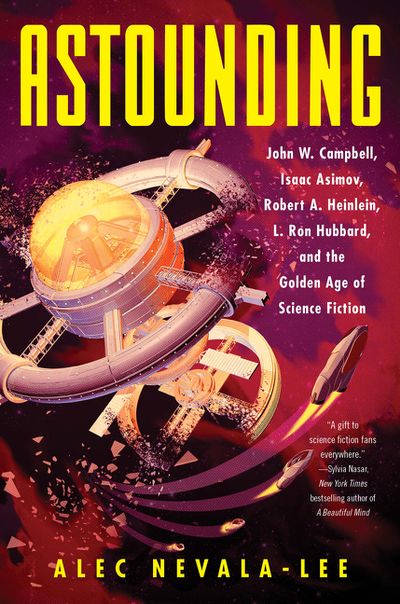
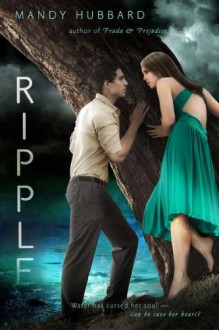

 Log in with Facebook
Log in with Facebook 

